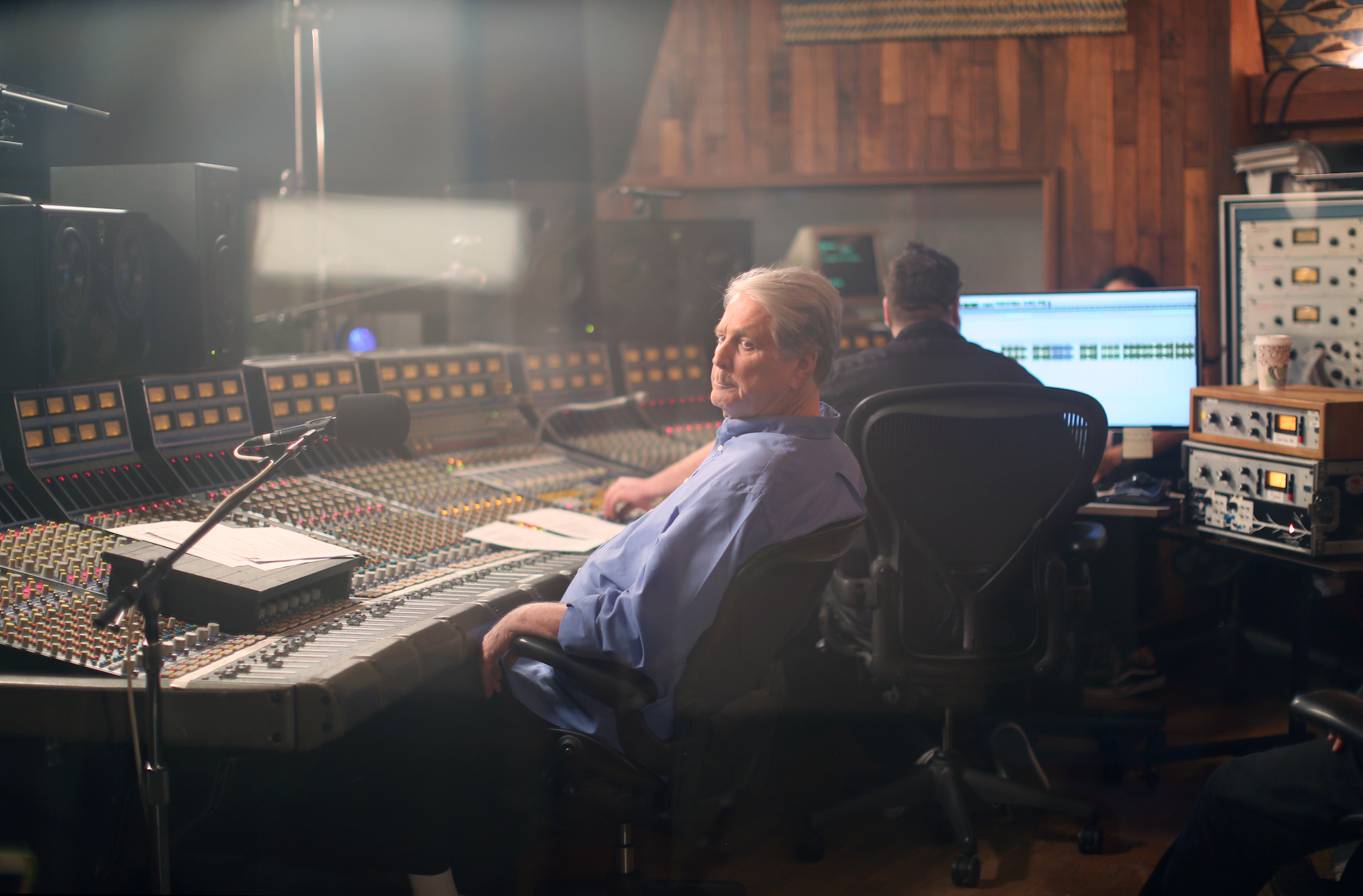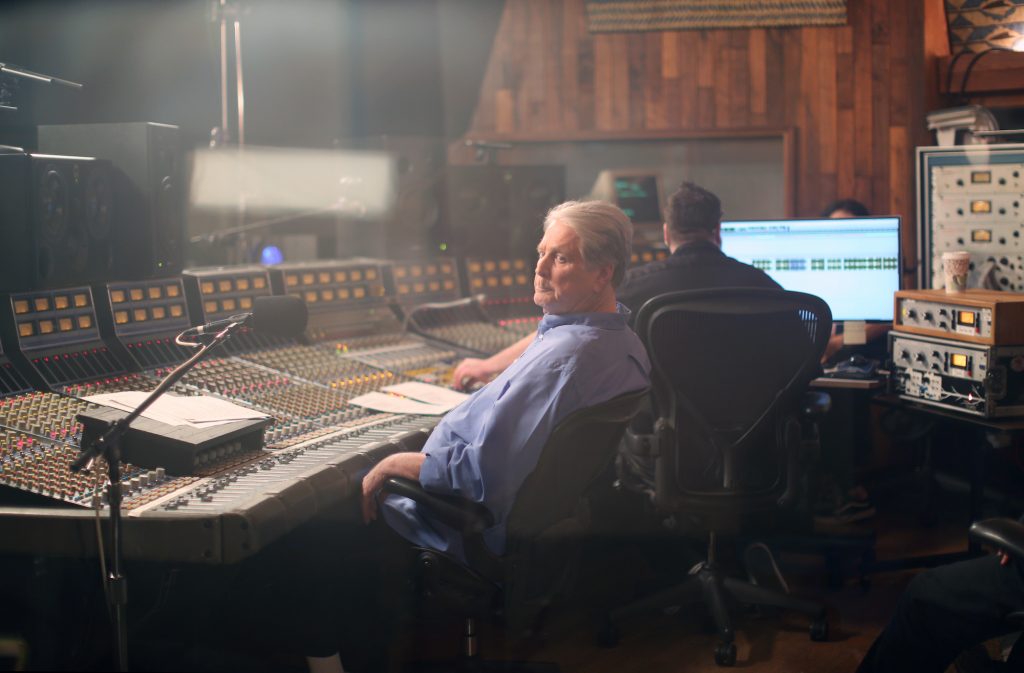

Premiering this week at the Tribeca Film Festival, along comes another film about Brian Wilson. Is there more to be said about this cornerstone of modern American music? Indeed, Long Promised Road provides several more angles to further understand the journey Brian Wilson has taken.
The film provides a wealth of encomia from well-respected musicians:
- “The Beatles had George Martin,” observes Elton John. “But Brian did it himself.”
- “One of the greatest artists of all time,” asserts Don Was.
- “No greater world in rock and roll was created than that of the Beach Boys,” says Jersey Shore native Bruce Springsteen.
- “On the level of Schubert or Handel,” says Gustavo Dudamel of Pet Sounds.
By age 22, Wilson had produced seven Top 10 hits, making The Beach Boys the most successful group in the world. Early clips reveal Brian’s humility and the sex appeal of brother Dennis. But the spine of the film is culled from 70 hours of recent footage of Brian driving around Los Angeles with journalist and friend Jason Fine.
Fine’s initial encounters with Wilson were at Rolling Stone, but that objectivity is eventually shed over the years. At Wilson’s favorite hangout (where my daughters delighted in saying hello to him a decade ago), Wilson is ironically loading up on frozen yogurt when reflecting on the health food store he ran in 1969, among other topics.
Wilson is open about the voices and fears that have haunted him since he was 21. Undoubtedly that darkness is what made his songs so compelling, bittersweet and eternal. “In My Room” is the apogee, and Springsteen confesses to playing it a thousand times. He also points to “Caroline, No” as one of the greatest songs in pop history. Elton repeatedly describes his amazement at Brian’s deceptively complex song structures. Was sits at a mixing board, isolating certain tracks to reveal how Brian used the recording studio like a musical instrument.
Fine and Wilson’s first driving tour of Los Angeles is from the blissful Paradise Cove in Malibu (site of the band’s first album cover shoot) to a somewhat stressful cruise past the site of Wilson’s childhood house in Hawthorne. Plaques mark both spots. Indeed, there are several points on the pair’s road trips when Wilson is visibly uncomfortable, and the camera lingers. We share Wilson’s discomfort. Particularly poignant is when they arrive at brother Carl’s house; Brian can’t bear to leave the car. But other stops bring back mostly fonder memories.
Once the demons became too loud in his head, Brian ceased touring with the band. He retreated (many would say hibernated) at home. The infamous house with the piano in the sandbox in the living room brings back his memories of writing the epic Pet Sounds. Recent concert footage reveals the strength of Wilson’s impeccable touring band, which sadly juxtaposes his diminishing vocal range. One attends a Wilson concert these days as a tribute to his brilliance. And despite a splintering touring version of The Beach Boys, Wilson’s ongoing shows are more authentic.
Very enjoyable are the efforts of Elton, Was, Springsteen, Jakob Dylan, Linda Perry and Jim James trying to unpack Brian’s complex and deceivingly simple compositions. Was here is covering familiar territory; in 1995 he directed a fine documentary on Wilson. Whereas that film served as an introduction to Brian’s genius for the uninitiated, the newer documentary fills in many of the earlier gaps and rounds out subsequent accomplishments. Was remains gobsmacked at Brian’s talent.
Long Promised Road takes a generally chronological approach but bounces nimbly across decades to drive home several points.
The ambivalent reception (from his band and the public) to Pet Sounds in 1966 sent Wilson further afield with SMiLE, which remained unreleased for decades. But the former caused four Liverpudlians to up their game; Pet Sounds is generally regarded as second only to Sgt. Pepper’s as the best album in history.
Overlaying modern-day studio sessions are audio clips of father Murry generally berating his sons. The film adds up the evidence of the modern tortured genius that is Brian Wilson. The nine years of Dr. Eugene Landy’s complete control of Wilson’s life are confronted head-on. Brian looked physically trim and fit during the ‘80s, but Landy’s mind games (and stolen songwriting credits) took a toll. Nonetheless, out of that era came the absolute sonic jewel “Love and Mercy.”
Watching Brian react to his music after talking about his deceased brothers Dennis and Carl is almost too intimate. How is it that Wilson never heard his brother Dennis’ solo album? Mental health has become a greater topic of public discourse, and this film reveals a half-century of an American treasure’s struggle through music as a healing balm.


Leave a comment